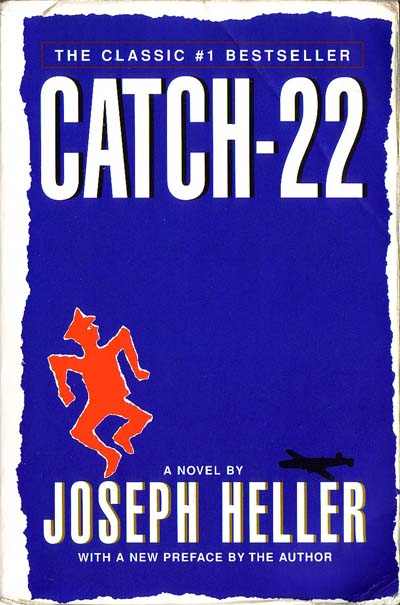Notes from the Underground
By
Fyodor Dostoyevsky
`Notes From The Underground' is a formidable work of philosophy and of psychology, not to mention its worth as a novel. In the space of around one hundred pages, Dostoyevsky manages to expound theories on reason, alienation, suffering, and human inaction. The book's importance and influence on generations of writers cannot be over-emphasised; Sartre and Camus are only two examples of people who have been directly influenced by this book.
The book is presented in two parts. Part one `Underground' is written in the form of the nameless narrator's rambling thoughts on reason and his claim that throughout history, human actions have been anything but influenced by reason. Underground Man's charge is that man values most the freedom to choose to act in opposition to reason's dictates. Dostoyevsky's critique of reason then, although it demands attention and is somewhat difficult to follow, sets the philosophical foundations for the rest of the book.
Part two `A Propos of the Wet Snow' is much easier to read, as the narrator recounts three episodes which happened when he was fifteen years younger and working as a civil servant in St. Petersburg. The first considers an incident in which an army officer insults him and goes on to detail Underground Man's subsequent internal anguish at his inability to commit an act of retribution. The second episode takes place at a farewell dinner for an acquaintance named Zverkov. The narrator is utterly disgusted with the company in which he finds himself but despite this, he is unable - even though he desires it - to make them realise this. The third episode details Underground Man's brief, painful and emotional relationship with a prostitute.
Dostoyevsky is refreshing in this book thanks not only to his incredibly powerful prose, but also for the intense but subtle way in which the stories reflect and indeed embody his philosophical theories. This dark and pessimistic portrayal of the nature of man may not sit very comfortably with many readers, however the ideas expressed in `Notes From The Underground' are as relevant and worthy of deliberation now as I am sure they were in 1864.
The book is presented in two parts. Part one `Underground' is written in the form of the nameless narrator's rambling thoughts on reason and his claim that throughout history, human actions have been anything but influenced by reason. Underground Man's charge is that man values most the freedom to choose to act in opposition to reason's dictates. Dostoyevsky's critique of reason then, although it demands attention and is somewhat difficult to follow, sets the philosophical foundations for the rest of the book.
Part two `A Propos of the Wet Snow' is much easier to read, as the narrator recounts three episodes which happened when he was fifteen years younger and working as a civil servant in St. Petersburg. The first considers an incident in which an army officer insults him and goes on to detail Underground Man's subsequent internal anguish at his inability to commit an act of retribution. The second episode takes place at a farewell dinner for an acquaintance named Zverkov. The narrator is utterly disgusted with the company in which he finds himself but despite this, he is unable - even though he desires it - to make them realise this. The third episode details Underground Man's brief, painful and emotional relationship with a prostitute.
Dostoyevsky is refreshing in this book thanks not only to his incredibly powerful prose, but also for the intense but subtle way in which the stories reflect and indeed embody his philosophical theories. This dark and pessimistic portrayal of the nature of man may not sit very comfortably with many readers, however the ideas expressed in `Notes From The Underground' are as relevant and worthy of deliberation now as I am sure they were in 1864.




